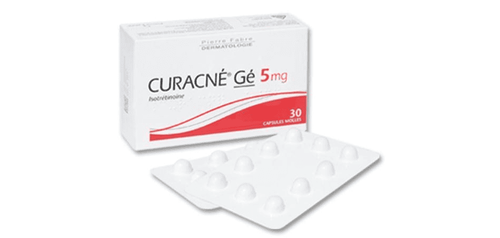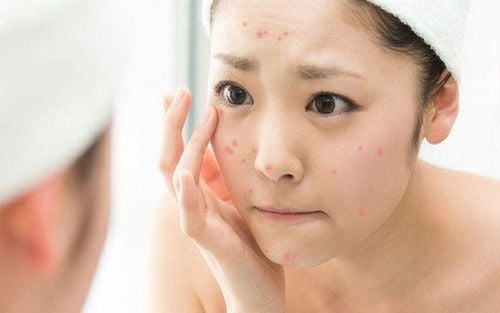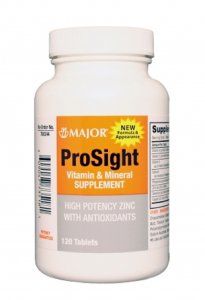This is an automatically translated article.
Atinon 20mg drug has the main active ingredient is Isotretinoin 20mg and other excipients in a sufficient amount. This is a drug belonging to the group of drugs for the treatment of dermatological diseases, specifically for the treatment of severe acne that has been resistant to standard courses of oral antibiotics and topical drugs.
1. What is Atinon 20?
Dosage form: soft capsule Packing: Box of 3 blisters x 10 tablets Product group: Drugs for the treatment of dermatological diseases Ingredients: Isotretinoin active ingredient 20mg 1.1. Pharmacodynamic properties Pharmacokinetics Isotretinoin is a stereoisomer of tretinoin. The mechanism of action of the drug Isotretinoin has not been elucidated. But according to clinical studies for acne, the active ingredient isotretinoin reduces the activity of the sebaceous glands and reduces the size of the sebaceous glands. The anti-inflammatory effect of Isotretinoin has not been proven.
1.2. Therapeutic effect Hyperkeratinization of the epithelial cells in the sebaceous gland hair follicles clogs the sebaceous glands, produces comedones, and eventually leads to inflammatory lesions. Isotretinoin inhibits sebaceous cell proliferation and appears to act by reprogramming cell differentiation. Sebum is the main substrate for the growth of Propionibacterium acnes bacteria. Therefore, the reduction of sebum production also inhibits the growth of bacteria in the hair follicles.
1.3. Pharmacokinetic properties Absorption: Absorption of the drug Isotretinoin from the gastrointestinal tract varies widely, absolute bioavailability has not been determined. When taking Atinon 20mg with food, the bioavailability of Isotretinoin is doubled compared to taking the drug on an empty stomach. Distribution: Active substance Isotretinoin is widely bound to plasma proteins, mainly albumin (99.9%). The volume of distribution has not been determined. Isotretinoin concentrations in the skin are approximately half of those in serum. Metabolism: After oral administration, there are 3 major metabolites in plasma: 4-oxo-isotretinoin, tretinoin, 4-oxo-tretinoin. These metabolites were biologically active in in vitro assays. Isotretinoin and Tretinoin are metabolised. Elimination: The mean elimination half-life of unchanged Atinon 20mg in subjects with acne is 19 hours. The mean half-life of 4-oxo-tretinoin is 29 hours. Active ingredient Isotretinoin is a physiological retinoid and endogenous retinoid concentrations are achieved within 2 weeks of termination of treatment with Atinon 20mg.
2. The effect of the drug Atinon 20
Atinon 20mg is used to treat severe acne that has been resistant to standard courses of antibiotics for oral and topical use.
3. Usage and dosage of Atinon 20
Atinon 20mg drug is made in the form of tablets, suitable for oral use. The drug should be taken with meals, 1-2 times a day.
For adults, adolescents and the elderly:
Should be started with a therapeutic dose of 0.5 mg/kg/day. Adjust the dose and duration of treatment for each individual. Most patients use 0.5 ~ 1.0 mg/kg/day. For people with severe renal impairment:
Should start at a lower dose (about 10 mg/day). The therapeutic dose may be increased gradually up to 1 mg/kg/day or to the maximum tolerable dose. For children:
Do not use Atinon 20mg for children under 12 years old.
People who are intolerant:
For those who do not tolerate the recommended dose, it is advisable to start at a lower dose but for a longer duration of treatment and a higher risk of relapse.
4. In case of forgetting or overdose of Atinon 20
In case of overdose: Isotretinoin has the same symptoms as a vitamin A overdose, including: severe headache, nausea or vomiting, drowsiness, irritation and itching. These symptoms should subside over time without treatment.
In case of missed dose: When you are in the process of using the medicine, take it as soon as possible (usually it can be taken 1-2 hours before the time ordered by the doctor). However, if it is almost time for your next dose, skip the missed dose and take your next dose at the prescribed time. Note, you absolutely must not use the drug with double the prescribed dose.
5. Undesirable effects of Atinon 20
The following symptoms are most commonly reported when using Atinon 20 drug including: Dry mucous membranes such as lips, cheilitis, nasal mucosa, nosebleeds, eye conjunctivitis, dry skin.
Some undesirable effects are related to the dose of the drug. These undesirable effects usually disappear when the dose is reduced or treatment with Atinon 20 is discontinued. However, in some cases, unwanted effects persisted even after stopping treatment with the drug.
In addition, you may experience the following undesirable effects:
Common side effects: anemia, increased erythrocyte sedimentation rate, thrombocytopenia, neutropenia, headache, eyelid inflammation eyes, conjunctivitis, dry eyes, eye irritation, nosebleeds, dry nasal mucosa, rhinitis, increased transaminases, cheilitis, dermatitis, dry and scaly skin, joint pain, back pain, increased triglycerides blood, hyperlipidemia, increased blood cholesterol, increased blood glucose, hematuria, proteinuria. Uncommon side effects: allergic skin reactions, anaphylaxis, asthenia, mood swings, rash Very rare side effects: lymphadenopathy, hyperuricemia, diabetes mellitus, confusion psychosis, suicidal ideation, benign intracranial hypertension, cataracts, color blindness, blurred vision, contact lens intolerance, decreased night vision, photophobia, hearing loss, vasculitis, bronchial asthma, enteritis, dry mouth, gastrointestinal bleeding, convulsions, nausea, pancreatitis, hepatitis, acne flare-ups, alopecia, skin hyperpigmentation, increased sweating, inflammation glomeruli, increased creatine phosphokinase. You need to proactively notify the treating doctor of any unwanted effects that you experience when using the drug.
6. Interactions of Atinon 20
Isotretinoin reduces night vision and reduces tolerance to eyeglasses. People with inflammatory bowel disease may have increased symptoms. Blood levels of triglycerides may be elevated. Hepatitis rarely occurs in people being treated with isotretinoin, the treating doctor will order periodic blood tests to check for signs of hepatitis. Atinon 20 drug is closely related to Vitamin A. To avoid causing poisoning, you should use Atinon 20 drug, do not take Vitamin A supplements. People who use Atinon 20 drug can worsen acne. when starting treatment.
7. Some notes when using Atinon 20
7.1. Contraindications Women who are pregnant or breastfeeding. People with liver failure. People with high blood lipids. Excess amount of vitamin A. The body is sensitive or sensitive to the ingredient Isotretinoin or any other ingredient of the drug. Concomitant use with antibiotics of the tetracycline group. 7.2. Notes and precautions when using Atinon 20: Atinon 20 can cause teratogens: Doctors will often inform users of this and apply contraceptive measures during use of the drug. You need to check for pregnancy before, during and after treatment with Atinon 20. You should not donate blood during treatment and one month after stopping treatment because Atinon 20 can be dangerous for pregnant women receiving blood. Acne may increase at the beginning of treatment but will subside as treatment continues, usually for a period of 7 to 10 days. Avoid direct exposure to strong sunlight or UV rays. You should actively use sunscreen with SPF 15 or higher. It is advisable to avoid laser skin treatment or use of corrosive chemicals for 5-6 months after treatment with Atinon 20, because of the risk of keloid scarring or increased or decreased pigmentation on the treated skin area. treat. Avoid waxing for 6 months after treatment with Atinon 20, because of the risk of skin peeling. Atinon 20 should not be used in combination with topical drugs that have the effect of sloughing off scales and breaking down keratin because of increased irritation on the skin. It is recommended that you apply moisturizing creams or ointments to the skin and lips from the start of treatment with Atinon 20 because the active ingredient isotretinoin often dries out the skin and lips. Atinon 20 can cause dry eyes , should use lubricating ointment or artificial tears . You may experience discomfort while wearing contact lenses, so wear glasses. When treating with Atinon 20, the doctor will order a liver enzyme test before treatment, 1 month after treatment and every 3 months during treatment. In many cases, liver enzyme values returned to normal during treatment. But if the elevation of liver enzymes is accompanied by clinical signs, the treating physician will consider reducing the dose or stopping the use of preparations containing the active ingredient isotretinoin. Your doctor may also check your blood lipids before treatment, 1 month after treatment, and every 3 months during treatment. Blood lipids can return to normal with dose reduction or diet. If blood triglyceride levels are too high or there are signs of pancreatitis, Atinon 20 should be discontinued. People who are suffering from severe diarrhea must stop using Atinon 20 immediately. People with hereditary problems of fructose intolerance should not take Atinon 20. People with diabetes, obesity, alcoholism, dyslipidemia need to be tested before treatment. 7.3. Note to pregnant and lactating women For pregnant women: Do not use Atinon 20 for pregnant women, people who intend to become pregnant or have a chance to become pregnant. Atinon 20 causes severe birth defects. Also, you should not get pregnant for at least 1 month after you stop taking isotretinoin. For nursing women: Atinon 20 should not be used by nursing women. General note during pregnancy: Atinon 20 used during pregnancy can cause adverse effects (miscarriage, teratogenicity, fetal malformation...) to any stage of development of the fetus. fetus, especially in the first trimester. Therefore, it is best not to use the drug for pregnant women. In the case of mandatory use of drugs, it is necessary to consult carefully with your doctor, pharmacist before making a decision. General precautions during lactation: Atinon 20 can be passed on to babies through breast milk. It is best not to or limit treatment with the drug while breastfeeding. Currently, there are many drugs that have not fully determined the effects of drugs in this period. Mothers need to carefully read the instructions for use and consult with the treating doctor or medical professional before deciding to use the drug. Atinon medicine 20mg has the main active ingredient is Isotretinoin 20mg and other excipients in sufficient quantities. This is a drug belonging to the group of drugs for the treatment of dermatological diseases, specifically for the treatment of severe acne that has been resistant to standard courses of oral antibiotics and topical drugs. To ensure effective use, users need to strictly follow the instructions of the doctor, professional pharmacist.
Follow Vinmec International General Hospital website to get more health, nutrition and beauty information to protect the health of yourself and your loved ones in your family.
Please dial HOTLINE for more information or register for an appointment HERE. Download MyVinmec app to make appointments faster and to manage your bookings easily.













